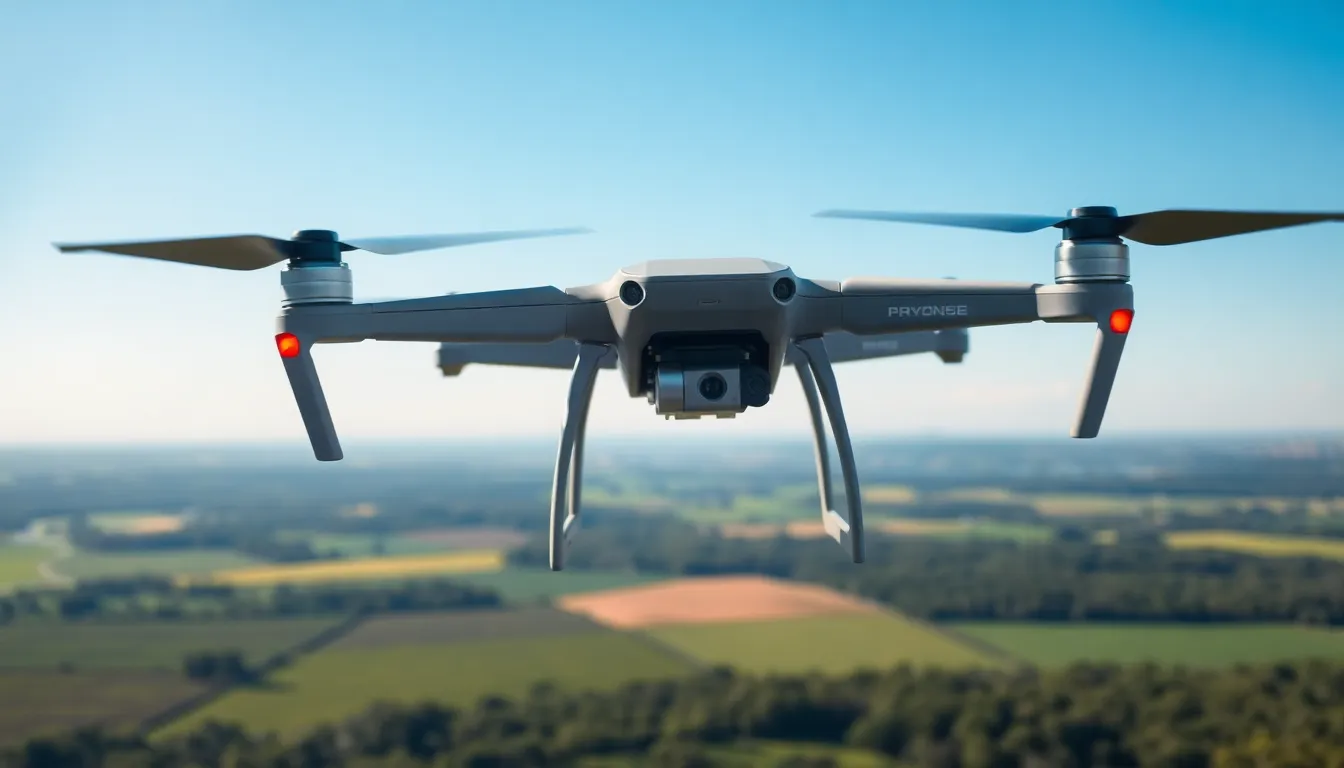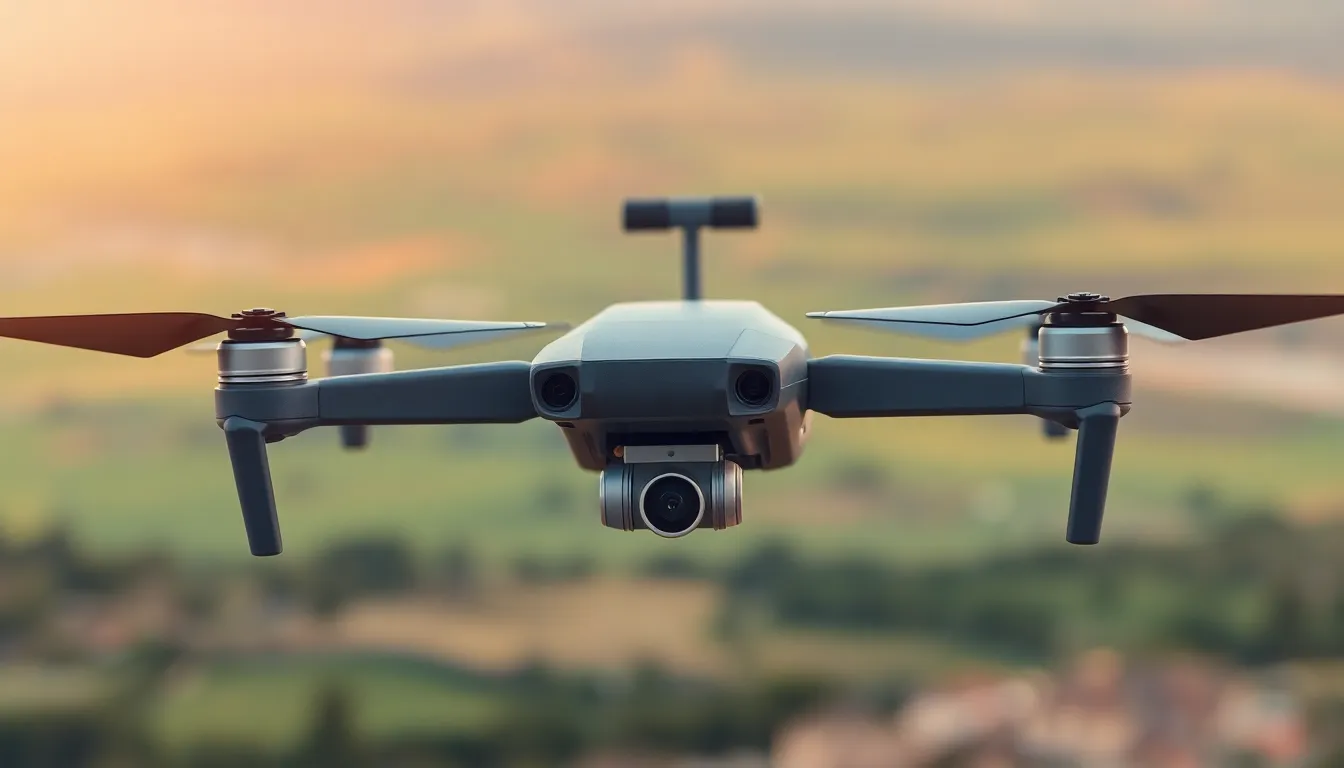Imagine a world where athletes have a personal coach that never sleeps, analyzes every move, and spits out data faster than a quarterback can throw a pass. Welcome to the age of AI in sports, where technology isn’t just a spectator but a game-changer. From predicting player performance to enhancing fan experiences, AI is taking the sports arena by storm, and it’s doing it with a flair that even your favorite sports commentator would envy.
Gone are the days when coaches relied solely on gut feelings and outdated stats. Now, they’ve got AI algorithms crunching numbers and providing insights that can turn a good team into a championship contender. So whether you’re a die-hard fan or a casual observer, buckle up—AI is here to elevate the game, and it’s doing it with a few laughs along the way.
Table of Contents
ToggleOverview of AI in Sports
Artificial intelligence fundamentally changes how sports are played and managed. AI technologies analyze vast amounts of data at unprecedented speeds. Player performance metrics improve through real-time analytics, allowing coaches to make informed decisions.
In training environments, AI systems identify patterns in a player’s movements. These systems suggest personalized training programs tailored to individual needs. Teams leverage AI to optimize strategies based on opponent analysis.
Fan engagement also benefits significantly from AI innovations. Data-driven insights enhance the match-day experience, offering fans deeper connections to their favorite teams. For instance, chatbots provide instant updates and answers to fan questions during events.
In broadcasting, AI algorithms analyze viewer preferences to recommend content. Sports networks use these insights to tailor their programming and improve audience satisfaction.
In injury prevention, AI tools predict potential health risks by monitoring player workloads and performance indicators. These predictive analytics help teams make proactive adjustments to training regimens.
Overall, the integration of AI in sports reveals a future that emphasizes efficiency, safety, and enhanced enjoyment for fans and players alike. AI’s ability to transform operational processes and fan experiences marks a critical evolution in the industry.
Applications of AI in Sports

AI significantly influences various aspects of sports. From performance analytics to fan engagement, these applications bring transformative benefits.
Performance Analytics
Performance analytics utilizes AI technologies to evaluate player metrics. Coaches leverage real-time data to track individual statistics. AI systems analyze movement patterns, helping trainers customize exercises for each athlete. Detailed insights into strengths and weaknesses enhance overall performance. Data visualization tools make complex statistics accessible, allowing teams to identify key areas for improvement. Coaches make informed decisions, leading to optimized game strategies.
Injury Prediction and Prevention
Injury prediction and prevention employ AI to safeguard players’ health. Systems monitor workloads to identify potential injury risks based on historical data. Predictive analytics assess factors like fatigue and exertion levels, offering proactive recommendations. Continuous monitoring allows coaching staff to tailor training loads, reducing the likelihood of injuries. Athletes respond favorably to personalized approaches aimed at staying healthy and competitive. Effective strategies protect players’ longevity in their sports careers.
Fan Engagement
Fan engagement rises through AI-driven tools and technologies. Chatbots provide instant interactions, offering real-time updates during events. Behavior analysis tailors content to suit individual preferences, enhancing viewing experiences. AI algorithms recommend highlight reels and personalized marketing, keeping fans connected to their favorite teams. Improved interaction fosters a loyal fan base, while data helps organizations refine marketing strategies. These innovations deepen the emotional ties between fans and their sports.
Challenges and Limitations
AI adoption in sports faces numerous challenges and limitations that impact its effectiveness.
Ethical Considerations
Concerns arise regarding the ethical deployment of AI technologies in sports. Transparency in data usage stands as a critical factor. Players and fans must understand how their information is used. Additionally, biases in AI algorithms can lead to unfair advantages or assessments, impacting athletes’ careers. Fairness in AI systems enhances the integrity of sports. Organizations must prioritize ethical practices to foster trust and acceptance among all stakeholders.
Data Privacy Issues
Data privacy issues present significant challenges in the integration of AI in sports. Athletes’ personal data often includes sensitive health and performance metrics. Safeguarding this information is essential to prevent unauthorized access. Regulations like GDPR underscore the need for compliance in data handling. Sports organizations face scrutiny regarding their data collection and storage practices. Protecting athlete privacy can enhance their willingness to embrace AI technologies, leading to a more successful integration in sports operations.
Future Trends of AI in Sports
AI’s role in sports advancement continues to expand, leading to several key trends. Enhanced data analytics tools enable teams to extract actionable insights, optimizing player performance and team strategies. Coaches leverage these powerful systems to fine-tune training regimens based on real-time feedback.
Fan engagement stands to transform significantly through AI integration. Personalized experiences will emerge from AI-driven platforms that analyze viewer preferences, offering tailored content and interactive features. Virtual reality environments might become commonplace, allowing fans to experience games from unique perspectives.
Injury prevention will gain further sophistication as AI systems improve. Predictive analytics will analyze extensive datasets, identifying pre-injury risk factors with higher accuracy. This proactive approach encourages a shift from reactive treatments to preventive measures that safeguard athletes.
Recruitment processes will adapt as well, benefiting from AI’s analytical capabilities. Scouting networks may utilize AI tools to evaluate talent more efficiently, identifying players with the potential for growth based on detailed performance metrics. Enhanced decision-making frameworks will emerge as a result.
Ethical considerations linger, while organizations face pressure to ensure transparency in data usage. Players, fans, and stakeholders alike require clarity on how data is handled, shaping trust in AI systems. Maintaining compliance with regulations ensures that athletes’ privacy is protected, enhancing confidence in AI technologies.
Ultimately, AI’s future in sports promises a landscape that prioritizes enhanced performance, deeper fan connection, and responsible practices. Advancements will shape how teams operate, how fans experience the sports they love, and how athletes train and compete. Each trend reflects a commitment to innovation while addressing the complexities that accompany technological integration.
AI is reshaping the sports landscape in profound ways. By harnessing advanced analytics and personalized training programs, teams can optimize player performance while enhancing fan engagement. The integration of AI tools not only streamlines operations but also fosters deeper connections between fans and their favorite teams.
As the technology continues to evolve, the potential for AI in sports is limitless. However, organizations must navigate ethical challenges and ensure data privacy to maintain trust. The future of sports will likely see a harmonious blend of technology and human insight, creating an environment that prioritizes performance, engagement, and responsible practices.





